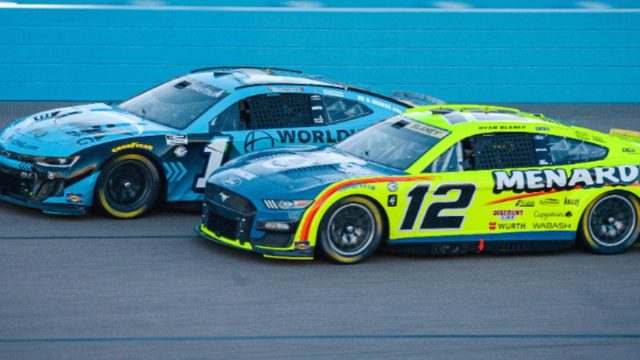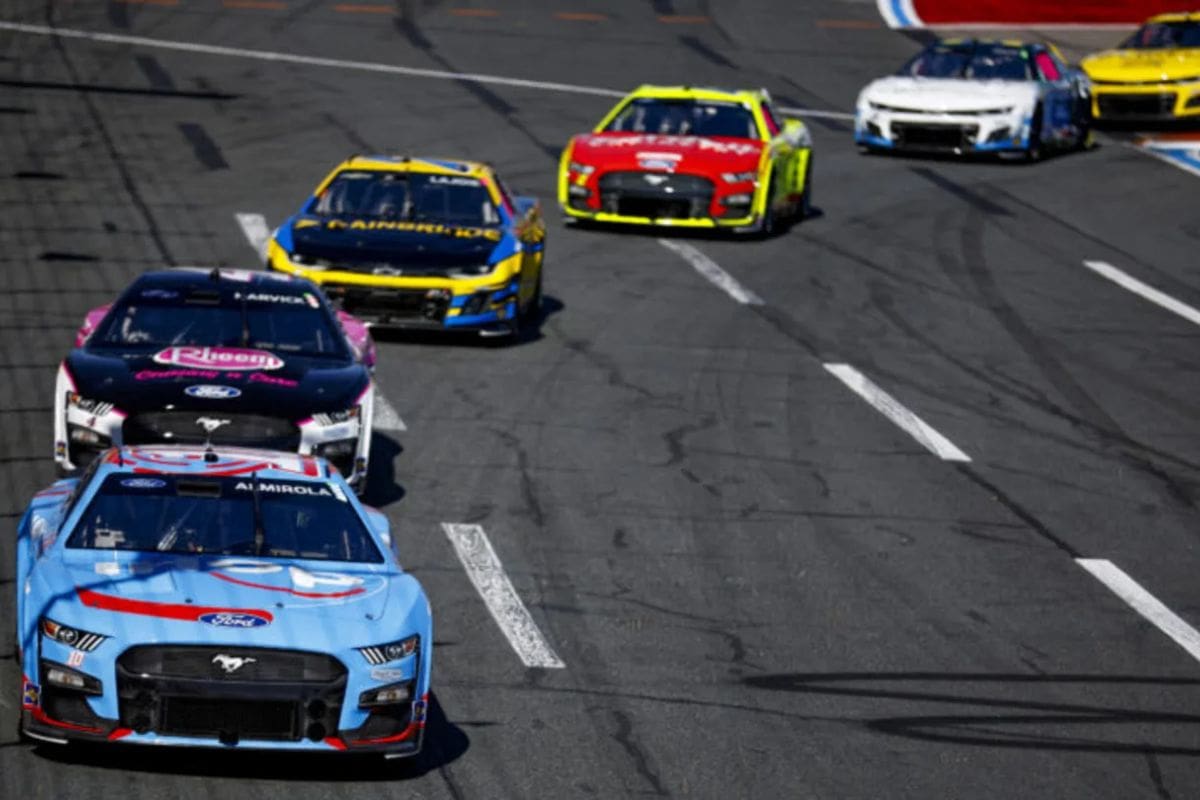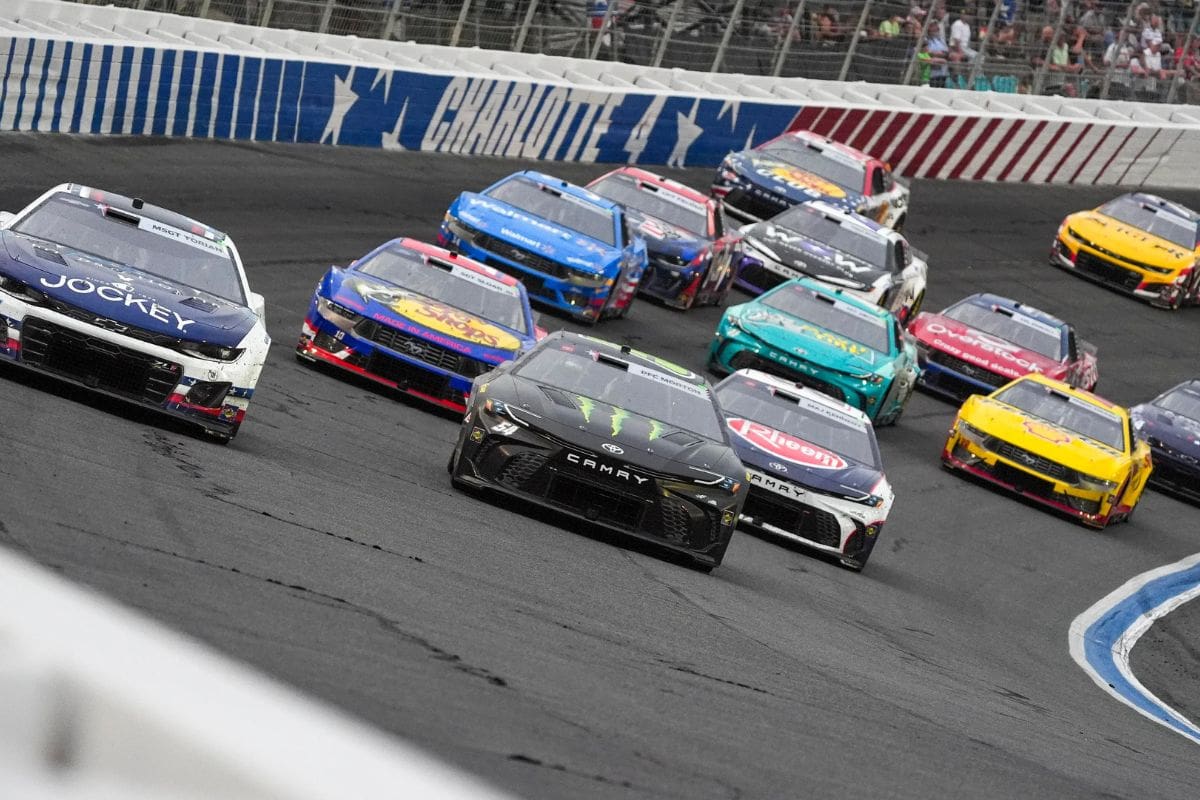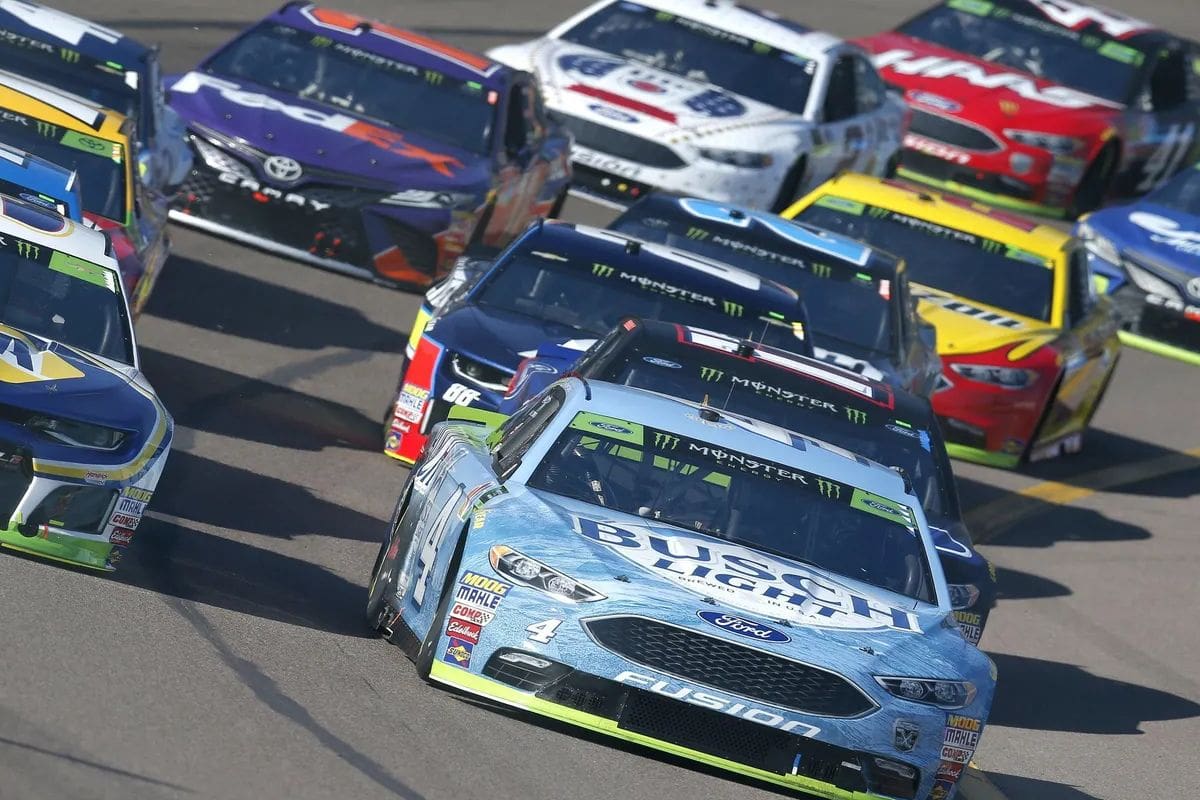NASCAR Netflix Documentary: The release of the Netflix documentary ‘NASCAR: Full Speed’ has catalyzed a contentious debate surrounding team access and the complexities of the charter agreement, particularly as teams navigate financial strains amidst the impending expiration of the 2016 charter deal. The ultimatum issued by teams regarding filming access raises critical questions about the balance of media engagement and the commercial interests that underpin NASCAR’s framework. As negotiations unfold against the backdrop of a substantial $7.7 billion media rights deal, the implications for both teams and the sport as a whole warrant closer examination. What lies ahead for NASCAR’s organizational structure and stakeholder relations?
Key Highlights
- The NASCAR documentary ‘NASCAR: Full Speed’ highlights tensions surrounding charter agreements and team access amidst a $5 million budget.
- Teams demand financial stability and threaten to withdraw filming permissions if charter issues remain unresolved.
- The expiration of the 2016 charter deal creates uncertainty, leading to disputes over access rights for media participation.
- The recent $7.7 billion media rights deal intensifies pressures on the charter system and team demands for permanence.
- Executive leadership changes aim to address these challenges and foster collaboration among teams and stakeholders for future growth.
New Documentary and Team Conditions
As the NASCAR playoffs approach, the release of the new documentary, ‘NASCAR: Full Speed,’ aims to capture the intense dynamics of the sport during this crucial period. Filmed on a budget of $5 million, this documentary takes an extensive look at the racing landscape, particularly focusing on the Darlington race, which serves as a key moment leading into the playoffs.
The filmmakers are leveraging last year’s tensions, which reached a global audience, to provide a fresh perspective on the sport’s evolving narrative.
However, the production is not without its complications. Teams have responded to the documentary’s filming requests with a set of conditions that reflect the sport’s shifting landscape. This involves negotiations around access to team operations and tactical insights that are often closely guarded.
The necessity for transparency clashes with teams’ interests in maintaining competitive advantages, prompting a reevaluation of how access is granted.
The implications of these conditions extend beyond mere filming logistics; they highlight a broader conversation about the relationship between media portrayal and the commercial realities of racing. As teams assert their influence, the potential for conflicts of interest emerges, challenging the documentary’s narrative integrity.
Charter Agreement Issues and Documentary Access
The ongoing uncertainty surrounding the charter agreement in NASCAR is creating substantial challenges for both teams and documentary filmmakers. As the expiration of the 2016 charter deal looms, teams are prioritizing their financial security over participation in media projects. This shift in focus complicates access for filmmakers, particularly as they attempt to capture the intricate dynamics of the sport during a critical phase.
The initial season of the Netflix documentary series, which provided an intimate look at driver struggles, was well-received. However, with the impending expiration of the charter deal, teams, such as Stewart-Haas Racing, are grappling with existential threats due to financial constraints. Consequently, the stakes for participation in further documentary content have escalated, prompting teams to negotiate stringent access conditions.
.@NASCAR's Productions unit has been filming with some drivers on the playoff bubble at Darlington for the second @Netflix documentary, as several teams agreed to give access on the condition that they can revoke their grant of rights if a charter deal isn't reached, per sources. pic.twitter.com/3oV9WpOCtF
— Adam Stern (@A_S12) September 1, 2024
In an effort to safeguard their interests, teams are signaling that their involvement in the documentary will be contingent upon the resolution of charter issues. Reports indicate that while several teams have tentatively agreed to participate in the filming of the following season of “NASCAR: Full Speed,” this access comes with an ultimatum: if charter demands are not satisfactorily addressed, they reserve the right to withdraw filming permissions.
This intricate interplay between financial negotiations and media access highlights the complexities faced by NASCAR as it navigates both competitive and promotional landscapes in an evolving industry. Without a timely resolution to charter agreements, the viability of such documentary projects remains precarious.
Charter Deal and Media Rights Deal Impact
In view of the recent $7.7 billion media rights deal, the implications for NASCAR’s charter system have become increasingly pronounced. The heightened demands from teams for charter permanence reflect a broader context of financial negotiation and governance within the sport. As the sanctioning body navigates the complexities of revenue distribution, the stakes are higher than ever, indicating a crucial moment in NASCAR’s operational landscape.
The financial split of television revenue has largely been agreed upon; however, the dispute lies within the governance structure and potential revenue opportunities for teams. The persistent desire for permanent charters demonstrates teams’ tactical positioning to secure their futures amid evolving media landscapes. This urgency is evident in their willingness to restrict access to new opportunities, such as docuseries, highlighting their commitment to asserting influence over the charter system.
The current landscape suggests that while the media rights deal may provide a financial boon, it simultaneously exacerbates the tension surrounding charter negotiations. The outcome of these discussions will likely shape the future structure of NASCAR, influencing both team dynamics and fan engagement in the years to come. As teams utilize their positions, the balance of power within the sport is poised to shift, setting a precedent for future negotiations.
Upcoming Changes for 2025 Season
NASCAR’s upcoming 2025 season is poised for considerable transformation, marked by a revised schedule and tactical personnel changes within the organization. As the 2023 racing season progresses, NASCAR is proactively laying the groundwork for a future that emphasizes innovation and adaptation to evolving fan expectations and competitive dynamics.
One of the most notable changes includes the introduction of new race tracks to the Cup Series calendar. New Mexico is set to host its inaugural points-paying race, a move designed to expand the geographical reach of the sport and improve its appeal to a broader audience.
Furthermore, the return of Rockingham Speedway for the Xfinity and Craftsman Truck Series signals NASCAR’s commitment to revitalize venues with historical significance, tapping into nostalgia while attracting both veteran and new fans.
These alterations to the schedule reflect NASCAR’s strategy to improve the overall race experience and engage a more diverse fan base.
The organizational shifts at the executive level emphasize NASCAR’s readiness to welcome noteworthy changes, even as it navigates complex negotiations surrounding charter deals. This proactive approach indicates a willingness to reassess and realign its operational structure to better support the anticipated growth and stability of the sport.
Executive Role Shifts and Future Directions
With substantial changes on the horizon for the 2025 season, NASCAR is also making key adjustments to its executive leadership, positioning itself for future growth and innovation.
President Steve Phelps is set to assume greater responsibilities, emphasizing the sport’s tactical vision and the global expansion of NASCAR-owned racing properties. This shift indicates a proactive approach toward enhancing NASCAR’s market presence and reaching new audiences.
Ben Kennedy, the 32-year-old heir apparent to CEO Jim France, will step into the role of executive vice president and chief venue and racing innovations officer. Kennedy’s background as a former racer and his familial ties to the France legacy provide him with unique insights and a fresh perspective.
His involvement in broadening the racing schedule signals a commitment to innovation, appealing to a broader fan demographic.
Additionally, other executive role shifts—including notable figures like Tim Clark, Eric Ryan, and Nick Rend—suggest a tactical realignment within NASCAR’s operational framework.
These changes are likely intended to cultivate a more agile and responsive organization, one that is better equipped to address the evolving landscape of motorsports.
While NASCAR is clearly charting a course toward a more inclusive and dynamic future, the uncertainty surrounding race team protests indicates that challenges remain.
The executive adjustments reflect a desire for collaboration and consensus, yet the underlying tensions within the sport may require continued attention as NASCAR navigates its path forward.
News in Brief: NASCAR Netflix Documentary
The controversy surrounding the NASCAR Netflix documentary highlights the intricate relationship between media access and financial stability within the sport. Teams’ ultimatum regarding filming access emphasizes the ongoing challenges posed by the expired charter agreement and the notable media rights deal. As NASCAR navigates impending changes for the 2025 season, the balance between commercial interests and transparency will be vital in shaping the future dynamics of team participation and media representation in the sport.
ALSO READ: Is NASCAR’s Mexico Bet a Smart Move? Fans Reveal Their True Feelings



